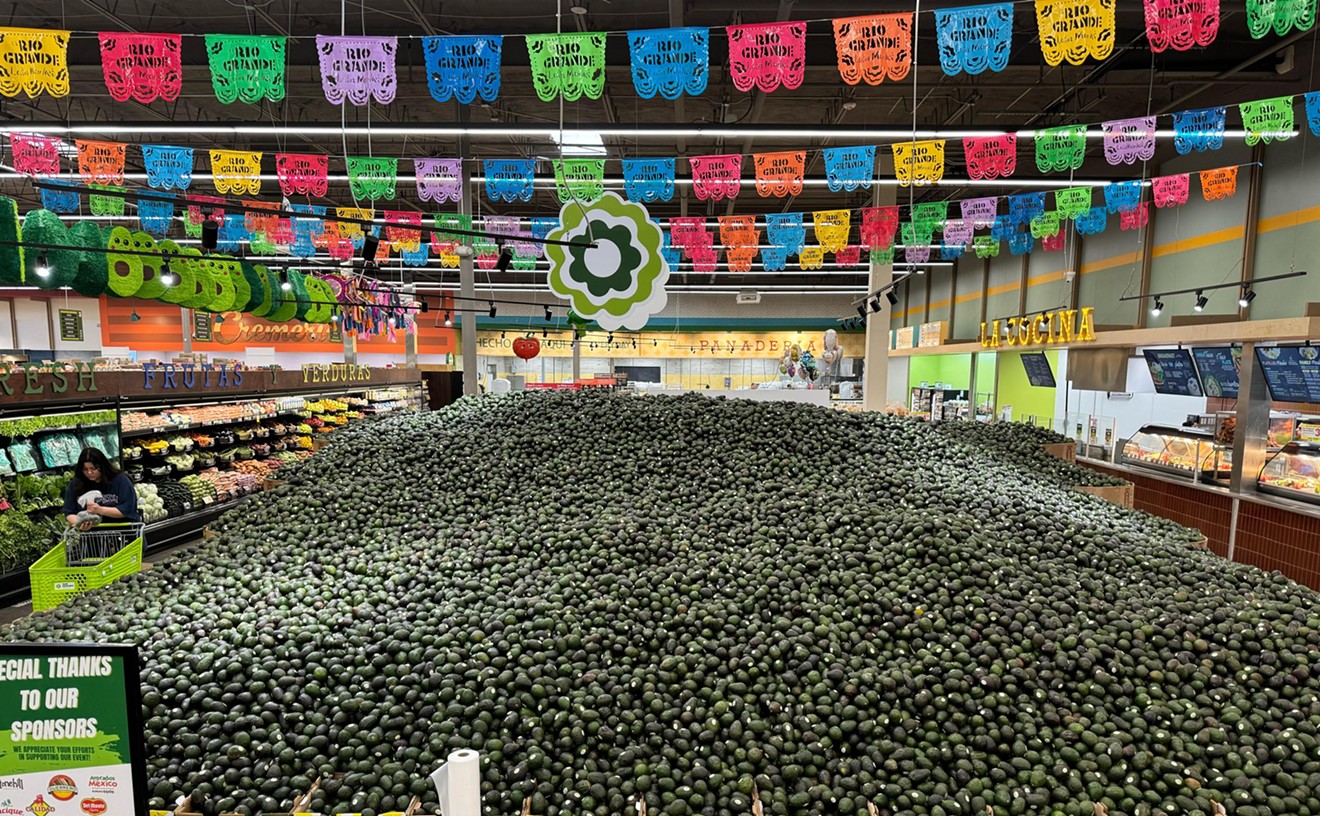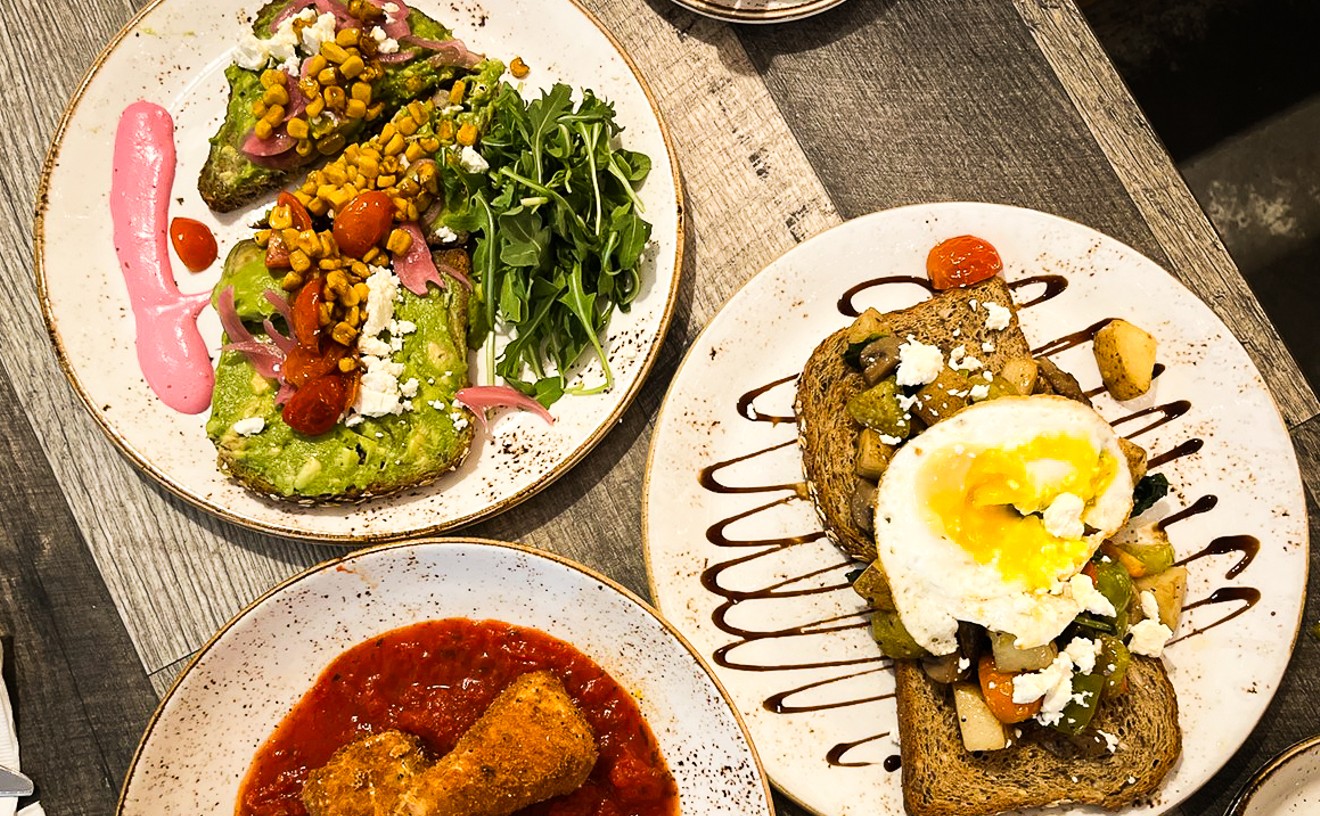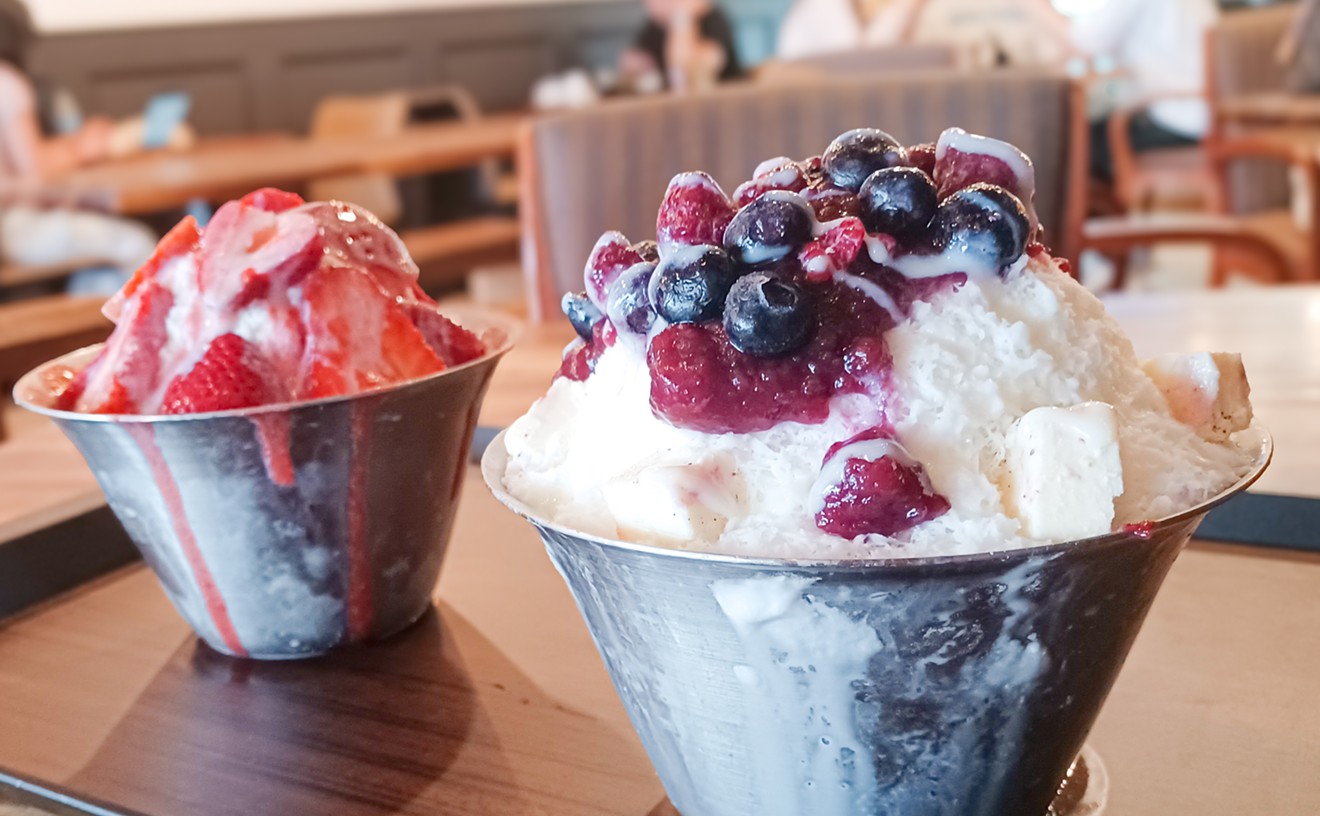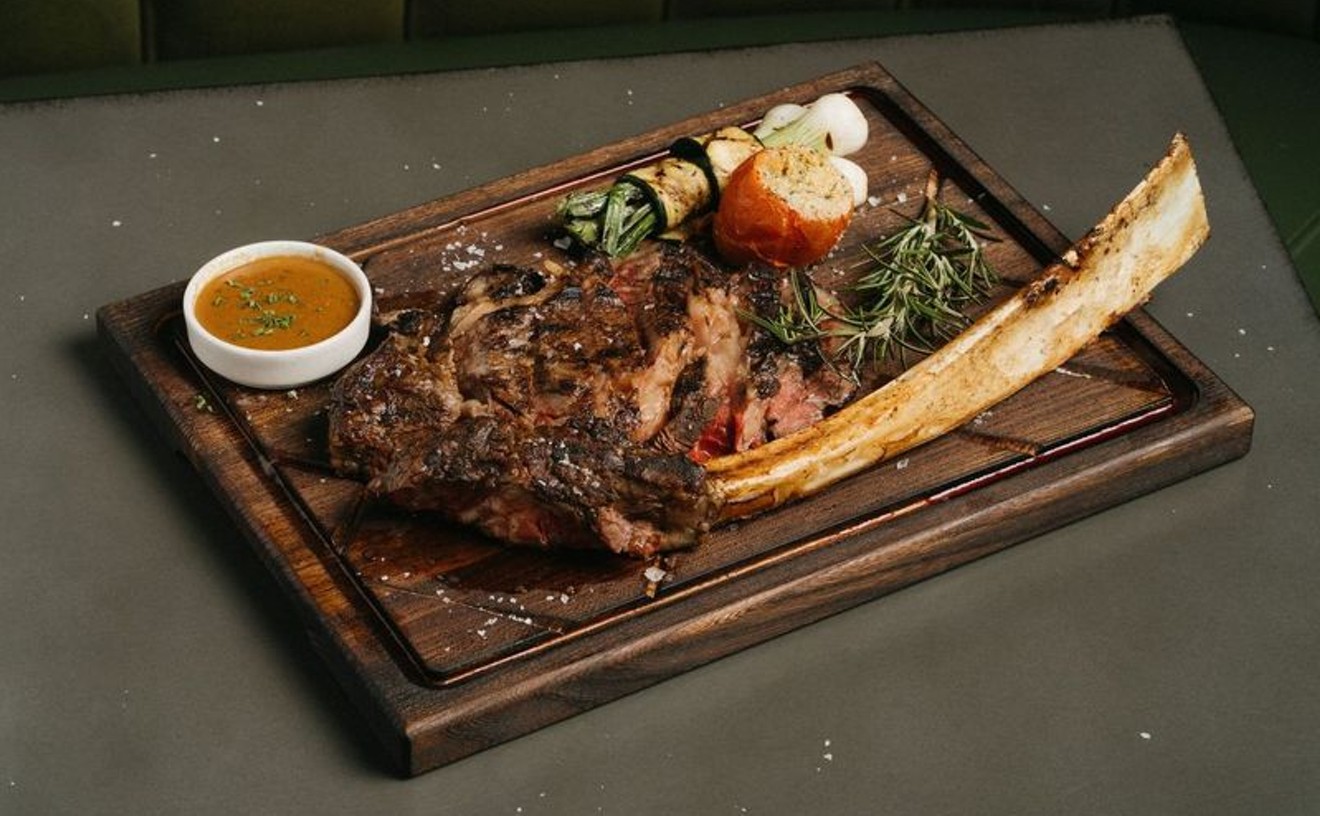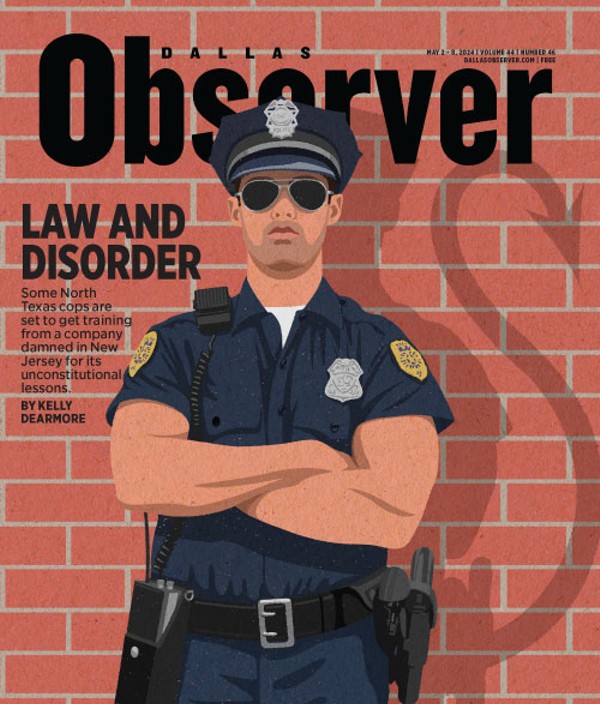Like craft beer and chef-driven restaurants before it, specialty coffee is having its moment, finally, in Dallas: Davis Street Espresso, in Oak Cliff, has found that a lack of Wi-Fi and to-go cups has not meant a lack of customers. Ascension, in the Design District, hums all day, despite limited parking and drinks that take a team of scientists to engineer. And the original cool kid on the block, East Dallas' Pearl Cup, was replaced by the even more refined Houndstooth.
The birth of these locally owned specialty shops has also spurred the rise of a growing number of baristas who take their work seriously, and a customer base that wants what they have to offer and more. Along the way, the city has developed a strong contingent of roasters who provide much of the coffee being so carefully brewed and sipped.
So, we went looking for them. We found them in farmers markets, roasting rooms and cafes from East Dallas to Fort Worth. Each of the roasters you'll hear from below has been in the business for at least a year -- some much longer -- and have wholesale clients across the area. Some have their own coffee shops, while others have decided to pursue wholesale only. Each has his or her own roasting style, philosophy and thoughts on what makes for a successful coffee business. What unites them is an almost obsessive attention to supply chain detail. From farm choice, to roast profile, to packaging, nothing about their coffee is an accident. Neither, then, is the love that Dallas' coffee shops, and coffee snobs, are showing them.
Look for extended interviews with the roasters in our coffee archive.
Novel Coffee Owners/Roasters: Kevin Betts and Ryan Smith Where they roast: East Dallas Where to drink their coffee: State Street Coffee, Roots Coffeehouse, Village Baking Company
Kevin Betts and Ryan Smith are chasing the perfect cup in a never-ending pursuit that pulled the brothers-in-law into forming Novel Coffee.
Both have been involved in the coffee industry for several years but began home roasting separately. Betts would buy 10 pounds of green coffee and meticulously explore every permutation possible, while Smith tried as many coffees from as many sources as he could find. Andrea, Smith's wife and Betts' sister, suggested they start a company. One day, while cupping an Ethiopian natural, they decided to take her suggestion.
"You make something in your home and think, 'Wow, this is really great,' and the next thing you want to do is share that with everyone you know," Smith says. "It wasn't a business model in search of a craft; it was a craft in search of an outlet."
The name Novel rose to the top of a long text thread of potential names. They had been looking for something simple and thoughtful without being too cute. They liked the double meaning: "Our coffee program is constantly renewing itself as new coffees become available throughout the year," Smith says. "Then there is the novel as in storytelling. We really wanted to put the idea that coffee has a story to tell at the center of our brand."
As the buyer, Smith works closely with people on the ground at the places of origin. "Logistically it would be easier to have one importer that supplied us with everything," he says, "but I look for people that have good relationships in their respective regions so we can be closer to the coffee."
Once Smith has picked the coffee lots that Novel will offer, Betts gets to work with the roaster. While Novel is focused on the sensory experience in the cup, Betts pairs that with data points during the roasting process to provide feedback about what is going on with the coffee.
"What's amazing is that you get very little feedback from the roaster -- basically temperature, time, color and smell," he says. "So you have to read between the lines to figure out what physical and chemical processes are happening in real time. How quickly you do certain things during a roast catalyzes certain reactions at the expense of others."
Betts' meticulous data collection allows him to look back after tasting a particularly good cup and see exactly what he did to bring out those qualities in the coffee. "I'm just trying to understand all the different components to green coffee and how they react with each other to achieve a certain flavor," he says. "So it isn't just a matter of loading the coffee in, turning it up and cooking it. It is more about figuring out the role I play in balancing the proportion of certain reactions to achieve the profile I want."
Don't mistake Novel's coffee geekery with snobbery. They aren't trying to talk you out of your cream or sugar, but instead hope you discover something unexpected, "balance" be damned. "Often when people talk about balance, what they really mean is safe," Betts says. "What we really want is a coffee that has a dynamic range and lights up the tongue from front to back."
Novel is available in shops across Dallas, including Method, State Street Coffee and Roots. They have also gained some fans in the Northeast, even being served alongside beans from George Howell, which the pair considers a great honor but only one step in the journey.
"We are never satisfied with what we are doing," Betts says. "We are always trying to get better. I love that there is never 'an answer.' By the time we feel like we are getting close to figuring out a coffee it is usually time to move on to something different. Coffee is such an extremely complicated beverage, and I think the industry is in the beginning stages of figuring out how it works, and it is exciting to be a part of that."
Cultivar Coffee Owners: Jonathan Meadows and Nathan Shelton Head roaster: Noe Lopez Where they roast: East Dallas Where to drink their coffee: Cultivar Coffee
Jonathan Meadows was 18 when he started working at White Rock Coffee and fell in love with coffee culture. "A big piece of it was the culture of the coffee shop," Meadows says. "You spend time with the same people day after day and eventually it starts to feel like home." He also loved the satisfaction of working with his hands and getting to see the results of his work. It was there that he also met Nathan Shelton, a quick friend and future business partner.
Soon, Meadows was looking to experience a different part of the country and get some roasting experience. He moved to Indiana and quickly learned how little he knew.
"I thought I was really good," he says, "but the people up there were making coffee unlike anything I had ever tasted and it totally blew my mind."
Meadows began learning everything he could, from how to make latte art to roasting fundamentals. During that time, he and Shelton also realized Dallas' relative infancy coffee-wise. Meadows decided to return to see if they could fill it, and together they started Cultivar Coffee, a roasting company and cafe in East Dallas.
"It seemed like such a pipe dream," he says. "Who would give us money when we were so young? But we went ahead and put some startup costs on paper so at least we would know how impossible our dream was." After doing the math, they realized that starting a roasting company required less money than the original dream of a coffee shop. To cut costs, they rented roaster time from now-defunct Well Coffee. With the purchase of some beans, bags, and a homespun logo, Cultivar was on its way with only $1,400 invested.
A barista by trade, Meadows has mixed emotions about roasting. "It's almost a meditative thing," he says. "You are there in this room with the beans alone and you are listening and using all your senses. On certain days that can be really wonderful and on other days it can feel like the loneliest job in the world." It's why Cultivar places a premium on customer interaction, and why head roaster Noe Lopez still makes time to be behind the bar.
Cultivar's roasting goal is a well-balanced cup with nice sweetness, acidity and body. "We aren't roasting to create a fruit bomb or anything like that," he says. "Our goal is to unlock the flavors that are already there."
Don't mistake accessibility for a lack of attention to detail, though. Meadows and Shelton are meticulous, from roasting to barista-training to making sure their staff and their customers get a chance to know the story behind their coffee.
"Knowledge adds value to the supply chain," Meadows says. "If people don't know that eight different processes happened to that coffee before they consumed it then there is this big disconnect between the customer and the cost. But how do we bring the story to people without forcing it on them? It is a subtle thing, but it makes a big difference, and right now I am wrestling with how to find a good balance between the two."
Though they are both only 26, Meadows and Shelton have co-owned a roasting company for five years and opened their first coffee shop, which shares a space with Good 2 Go Taco, over three years ago, giving them a unique perspective on the specialty coffee industry in Dallas. They recently opened their second location, a shared space with Hypnotic Donuts in Denton, and next year will open a shop in Oak Cliff.
"Things have come full circle for us in a lot of ways," he says. "Now I think if someone wants to drink a vanilla latte, what difference does it make? No, that isn't how I would drink it, but I probably appreciate coffee on a different level. When I drink my coffee black, I am more in tune with the whole chain. And I want that same experience for people, I really do, but not at the expense of making them feel like an idiot. So if someone wants a vanilla latte then I'm going to make a vanilla latte and give them the same customer service as everyone else."
Tweed Owner: Sean Henry Head roaster: Jonathan Aldrich Where they roast: Design District Where to drink their coffee: Houndstooth Coffee
When the announcement came almost a year ago that the original Pearl Cup coffee shop on Henderson Avenue would close, caffeinated tears were shed: It was local, it was beloved, and now it was gone. And then it sat empty for months, paper shielding its windows, keeping its future in the dark.
That future belonged to Sean Henry, whose Houndstooth Coffee has been waking up Austin for years and finally opened in Dallas this summer. But Henry's more than a coffee-shop owner. His new Dallas-based roasting company, Tweed, is finding its way into cafes around the city. It's a lot to juggle for him and roaster Jonathan Aldrich, but the juggling is what makes both businesses work, Henry says.
"Because I come from a retail background I think I have a good idea of what the end user has the possibility to experience," he says. To him, the ideal Tweed experience -- available now at Houndstooth, Oak Lawn Coffee, Gemma and elsewhere -- provides a small interruption in your daily routine. "Coffee moments," he calls them: "Those times where there was something about the coffee or the conversation you were having that makes you remember that moment for years."
In creating them, he says, the first thing he looks for is cleanliness and sweetness. After that, roaster Aldrich says, quality coffee diverges in two directions: chocolate/nuts and floral/bright. For both, he seeks out potential for balance in the end product. "My goal is to roast something that people enjoy," he says. "So rather than have my motivation be to roast to some exacting standard, I would rather spend my time working toward a high standard that is also going to be enjoyable. I'm not afraid to work with challenging coffees, but it is important to walk the line of doing something interesting and dynamic while still making it approachable."
Eiland Coffee Roasters Owner/Roaster: Clay Eiland Where they roast: Richardson Where to drink their coffee: Murray Street Coffee Shop
Clay Eiland talks about his roaster with the beaming face of a dad describing his 4-year-old's soccer goal. But unlike that goal, this roaster is deserving of the pride: It's a Probat UG22, out of production and much sought after among roasters. A gadget guy at heart, Eiland is always looking for the finest coffee equipment, and the Probat is his most prized instrument.
Eiland is the local roasting game's seasoned vet: He's been selling Eiland Coffee Roasters coffee for a decade and a half. During that time, he has seen trends come and go and return again, but also many gradual shifts, including an industry that once leaned heavily on flavored coffees and very dark roasts giving way to lighter roasts and an increased interest in espresso.
"In 1999 I visited Café Vita in Seattle and had my eyes opened to what coffee could be," he says. "I will never forget my wife's face as she drank her coffee and realized that she didn't need or want sugar added, that it was great as is. They were doing so many interesting things up there with roasting and pulling shots and preparing drinks. I was really inspired to bring those things back home to Dallas."
Eiland roasts for shops like the much loved Murray Street Coffee in Deep Ellum, creates custom blends for businesses of all sizes and sells directly to the public out of his small roastery in Richardson. He also sells coffee brewing equipment, some of his current favorites being Brazen for home brewing and Synesso for commercial espresso machines. Through it all, he has come to realize that everything old is new again.
"Everything is cyclical," he says. "The main thing new innovation allows us to do is focus on precision and repeatability, which is an exciting thing to bring to customers."
Oak Cliff Coffee Roasters Owner/Roaster: Shannon Neffendorf Where they roast: Oak Cliff Where to drink their coffee: Davis Street Espresso, Wild Detectives
Shannon Neffendorf's entry into coffee roasting came out of selfish necessity. His job with Blockbuster required routine work trips to Milan, and he soon found himself meeting with friends for cappuccino in the morning and taking espresso breaks in the afternoon. "Everywhere you went it seemed like baristas were very dedicated to their craft," he says. Frustrated he couldn't find that experience back in Dallas, he began roasting at home, on his front porch with a popcorn popper.
Oak Cliff Coffee Roasters was born several years later, when friends began throwing money at Neffendorf in exchange for some home-roasted coffee. In January 2009, Crooked Tree Coffeehouse became his first wholesale client, and Neffendorf quit his job at Blockbuster to go into roasting full-time.
Since then, he's expanded his wholesale business to include Wild Detectives and Fourteen Eighteen Coffeehouse, Whole Foods and Urban Acres, and porch delivery to certain ZIP codes in Oak Cliff. Last year, Neffendorf opened his first and only brick and mortar location, Davis Street Espresso.
While much has changed from those days on the porch, little has changed about Neffendorf's style and approach to coffee. In everything he does, Neffendorf says, he works to stay connected to the end drinker's experience with his coffee.
"There is this saying about 'the curse of knowledge,'" he says. "The more you learn about your craft, the more disconnected you become from the people who consume your product on a daily basis but don't have the same experience that you as the craftsman does. So I try always to be aware that people aren't always coming from the same place I am."
Neffendorf believes what's best for the coffee is a light footprint on the part of the roaster and barista. "There is a lot of work and effort that goes into a coffee all the way through, and I want people to taste the work of the farmer, the roaster and the barista," he says. "But I think that is most evident in the cup when we stay out of the way and let the product speak for itself."
That in mind, direct trade and farm trips have long been a priority for OCCR.
"My family tries to source a lot of the food we eat, from growing it ourselves to buying milk and meat from people we know," he says. "Those relationships are important to us because there is value in their connection to the land. Coffee is different though because you can't source it locally, so I see OCCR as filling that gap. I can go to El Salvador and bring back information and a human connection in addition to the coffee."
Neffendorf also appreciates not being compelled to obsessively check the commodities market for price fluctuations. With direct trade, he and the farmer agree on a price for the year and are unaffected by market swings. Over the years, OCCR has expanded and strengthened long-term relationships with farms all over Central America. Neffendorf loves that these sustained relationships give farms an opportunity to improve infrastructure and bean quality year after year. And he's widening his search for great product by building new relationships across Africa.
And with the new cafe under the same roof as his roastery, he can build better relationships with his customers, too. "Having educated customers is important, so we do cuppings and client trainings and things like that," he says. "But really the need for education is a by-product of the industrialized food system. We have an education gap because the relationships with the people that grow and make our food broke down. So our primary goal isn't education, it is to reconnect people and establish trust. I want people to know and trust that what I have on my shelf is done the right way."
Avoca Owner/Roaster: Gerald LaRue Where they roast: Fort Worth Where to drink their coffee: Avoca, Mudsmith
After years spent behind coffee bars, Gerald LaRue decided it was time to delve deeper into the business of coffee. He ended up in Juneau, Alaska, with two bags to his name, and spent 18 months learning everything possible about roasting. He was immediately fascinated with the blend of craft and science required to roast good coffee.
"Chemistry, thermodynamics and physics all play a role," says LaRue, who started Avoca, his roasting company, in 2010. "And then on top of that you have to figure out what people are going to do with your coffee once you sell it to them. I like having to think up and down both ends of the supply chain, from the farmer to the customer."
When working with growers, LaRue says he's always looking toward the future. One thing he looks for are individuals willing to take the time to keep records of farm inputs and outputs. Every year, coffees around the world are scored based on a variety of factors such as aroma, acidity, body, balance and cleanness. If a particular coffee doesn't score as well as he would like in a given year, LaRue and the farmer will work together to make adjustments. LaRue knows the key to good coffee long term is building those strong relationships now.
On his end, LaRue's mission is to produce what he calls a "constantly excellent" cup of coffee. He considers all the people who might brew his coffee, which varies from baristas at Avoca in Fort Worth or Mudsmith in Dallas all the way to an individual customer brewing his morning cup at home. "It's important to me that the cup is thought through so that no matter how many hours of training you can brew a consistently good cup," he says. "I try to be really controlled on my end, to allow for the coffee to be more forgiving on the other end."
LaRue believes it is important to offer a variety of coffees to his customers, but also to pay attention to what they want. He makes sure to offer beans from both East Africa and Central America on a regular basis and will then contrast those regular offerings with a smaller lot standout coffee. "Sometimes you want a jalapeño bacon cheeseburger, but most of the time you just want a burger," he says. "But the meat and bun had better be good every time."
Noble Coyote Coffee Roasters Owners/Roasters: Kevin and Marta Sprague Where they roast: Lake Highlands Where to drink their coffee: White Rock Local Market, Green Grocer, Jimmy's
Every Saturday, Kevin and Marta Sprague get up before the sun and set up their tent, table and coffee equipment at the White Rock Local Market, which rotates between two East Dallas parking lots. They spend the next five hours there talking to customers, sharing samples and stories about their coffee, all smiles through the wind and rain of spring, the heat of summer, the cool mornings of fall. In the afternoon they break it all down and go home.
This is all after a seven-day work week spent roasting, bookkeeping and delivering coffee beans around DFW, work the couple does themselves. And yet, they're still standing.
It all started when Marta bought Kevin a home roaster in 2002 for a birthday present. What began as a hobby quickly took over their lives. Soon, vacations revolved around trips to roasteries, and Kevin began reading everything he could about coffee. During the recession, the company they both worked for downsized, and they found themselves unemployed. One night in 2011, sitting on the porch with a beer, it clicked.
"Coffee was already such a huge part of our lives and we thought, 'Why not just see if we could roast coffee and give ourselves jobs in the process?'" Marta says. "We didn't have anything to lose, so we decided to go for it." They launched Noble Coyote Coffee Roasters that April.
The Noble Coyote Coffee Roasters logo bears the silhouette of their beloved dog Zephyr, but the name has different origins. A coffee coyote is a middleman between farms and destination countries. Many of these farms are small and easily exploited by the middlemen. "In many ways we are like a coyote or middleman," Marta says. "But we try to make wise choices to support ethical trade and make sure farmers are compensated."
You can find their weekly coffee offerings at stores like Green Grocer and Jimmy's, shops like State Street Coffee and Café Silvia and, of course, White Rock Local Market, where Noble Coyote got its start three years ago. "Since we don't have a shop, it's great to have a place where people can come and taste all of our coffees and ask questions," Marta says. "We owe a lot to WRLM in terms of connecting to people and beginning to establish wholesale relationships." One of those original WRLM connections was with Pop Star Handcrafted Popsicles, which now uses Noble Coyote Coffee in one of its treats.
It's one of a handful of partnerships that keeps Noble's product on people's palates and its brand on their brains. You can find their coffee beans in foods at Dude, Sweet Chocolate, The Slow Bone, Carnival Barker's Ice Cream and Lakewood Brewing Co. whose new French Quarter Temptress features Noble-roasted coffee. The beans rested in a spent bourbon barrel for four months before being roasted and added to the beer. Rather than volatilizing during roasting, the bourbon aromatics only intensified, creating the perfect bean for a New Orleans-inspired brew. There is already a new spent bourbon barrel inside the Noble Coyote roasting room, holding beans that will eventually be turned into 2015's offering.
As if all this isn't enough, Noble Coyote will soon move its roasting operation to Expo Park. Though the emphasis will remain on roasting, the Spragues want to expand their availability to talk with people about their labor of love beyond Saturday mornings.
"We really want people to enjoy our coffee and would love for it to open up the realization that there is a lot of thought that goes into every cup of coffee, including sourcing and choosing the roast that we want to put out there," Marta says. "Also to know that without the backbreaking work of farmers and pickers we wouldn't have coffee at all. That is a lot to come out of a cup of coffee, I know, but we love being a part of connecting people with the whole process."





